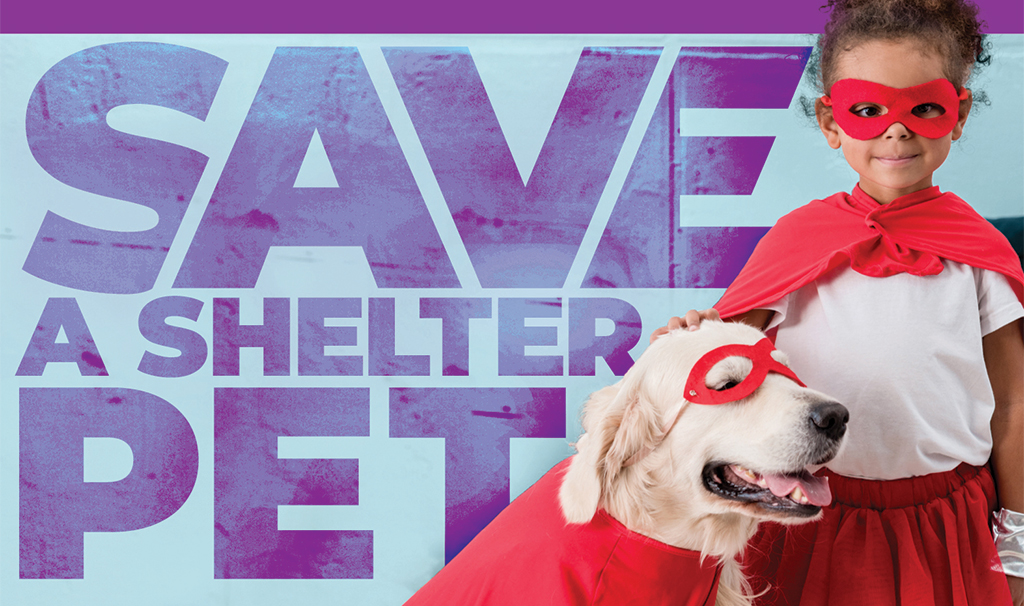
At CharityRx, we hold a special place in our hearts for our pets and the millions of shelter animals nationwide. While most shelters in the U.S. have committed to being “no-kill” shelters, there is still much work to do to help the millions of animals surrendered to shelters each year. For this reason and because it’s National Pet Month, CharityRx will donate funds earned through prescription refills in April to animal shelters nationwide as well as the Shelter Pets Rescue Fund. This fund helps to provide supplies like pet food, toys, blankets, medicine, and resources to local animal shelters in your community to help them save more animals each year.
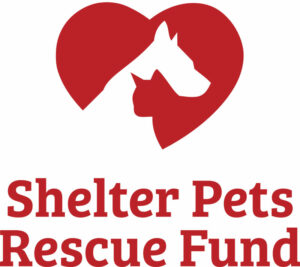
The terms “humane society” and “SPCA” are generic; shelters using those names are not part of the ASPCA or The Humane Society of the United States. Most humane societies are individual organizations that rely on volunteers and donations to stay afloat and help as many animals as possible. Each state may have one or more humane societies, as well as many city and county shelters run by local governments and include animals brought in by animal control officers. Often, these organizations will work together to optimize the care and welfare of homeless animals within the community. When government shelters are overflowing with pets, they might transfer some to the nearest humane society. If an animal is picked up by animal control and needs medical care, they are often taken to the humane society for care.

According to the ASPCA:
*These estimates are based in part on Shelter Animals Count data and other known and estimated sources, 2019. These are national estimates based on data obtained from shelters and rescues; the figures may vary from state to state.
In some regions of the United States, 50-75% of the shelter population is cats, and cats and kittens are overwhelmingly more at risk for euthanasia. The annual number of cats and dogs entering shelters is down significantly from 20+ million in 1973. The euthanasia of healthy, adoptable cats and dogs in U.S. shelters is down to its lowest point in history. Generally, cats and dogs being euthanized experience untreatable medical illnesses or are unsafe to place in the community. [2]
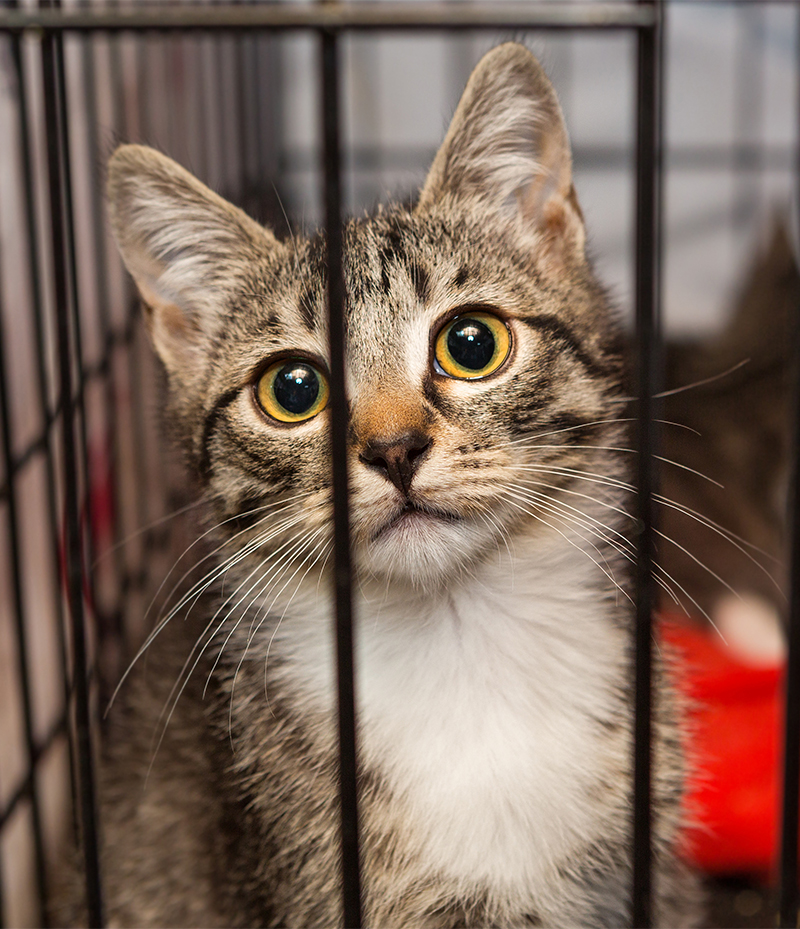
According to Best Friends Animal Society:
83% of the 4.6 million cats and dogs that entered US shelters were saved in 2021.
Sadly, 355,000 cats and dogs needlessly died.

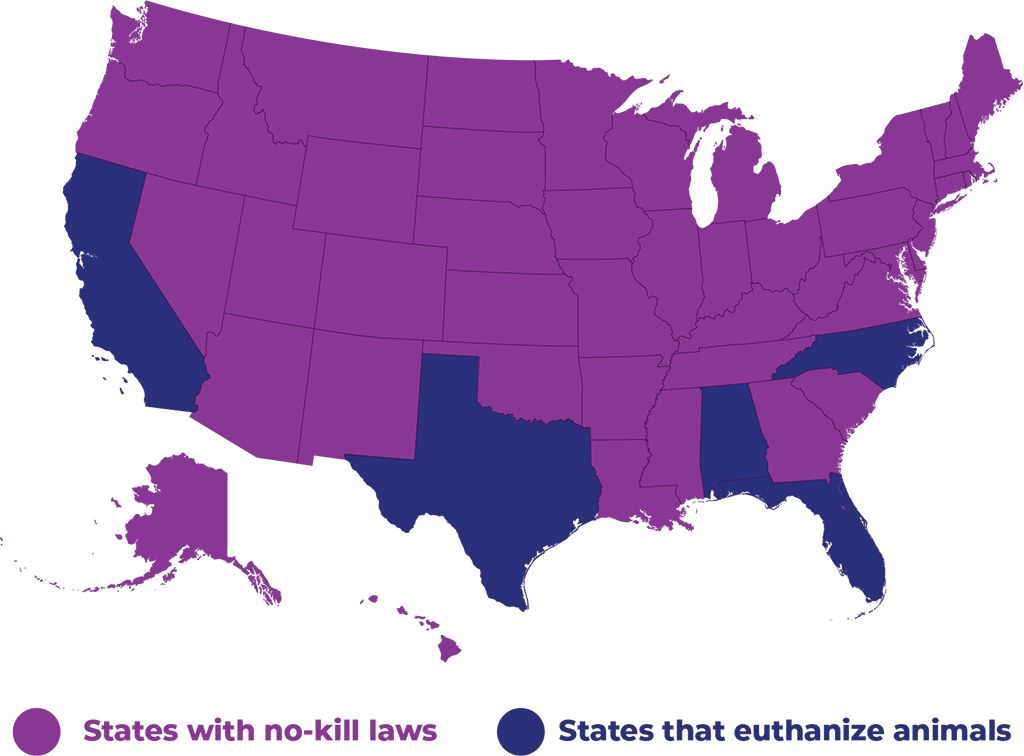
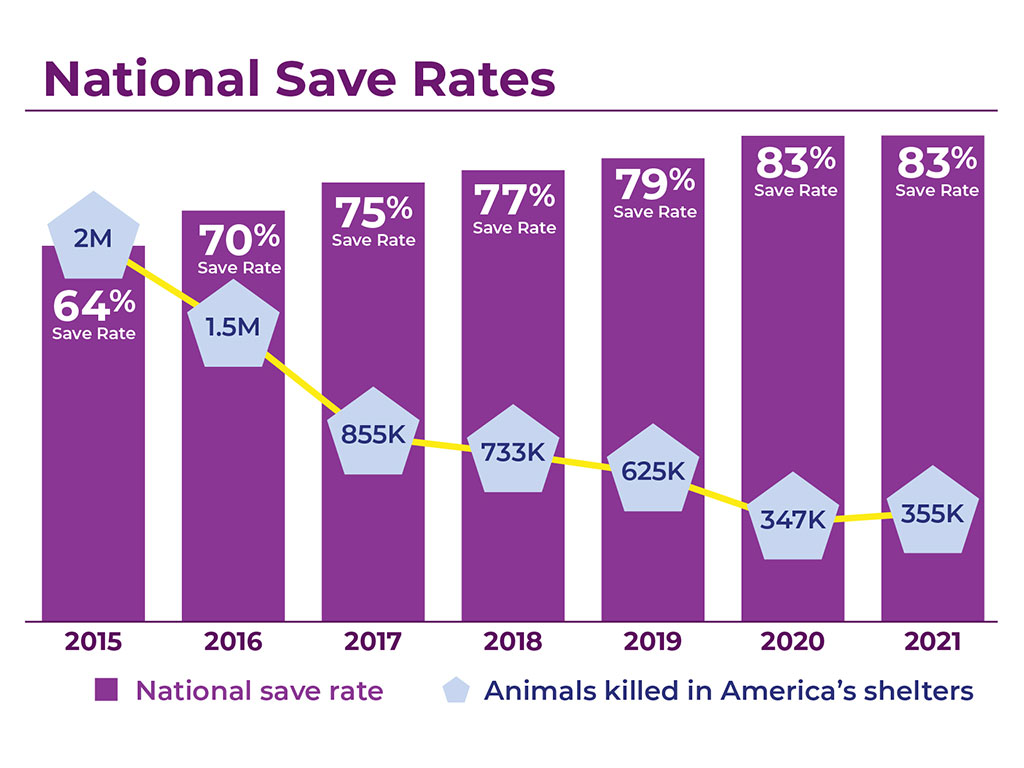
14.1% of dogs are surrendered due to housing issues, the top reason for canines, while more cats are surrendered due to the owner having too many animals (22.6%) than any other reason.
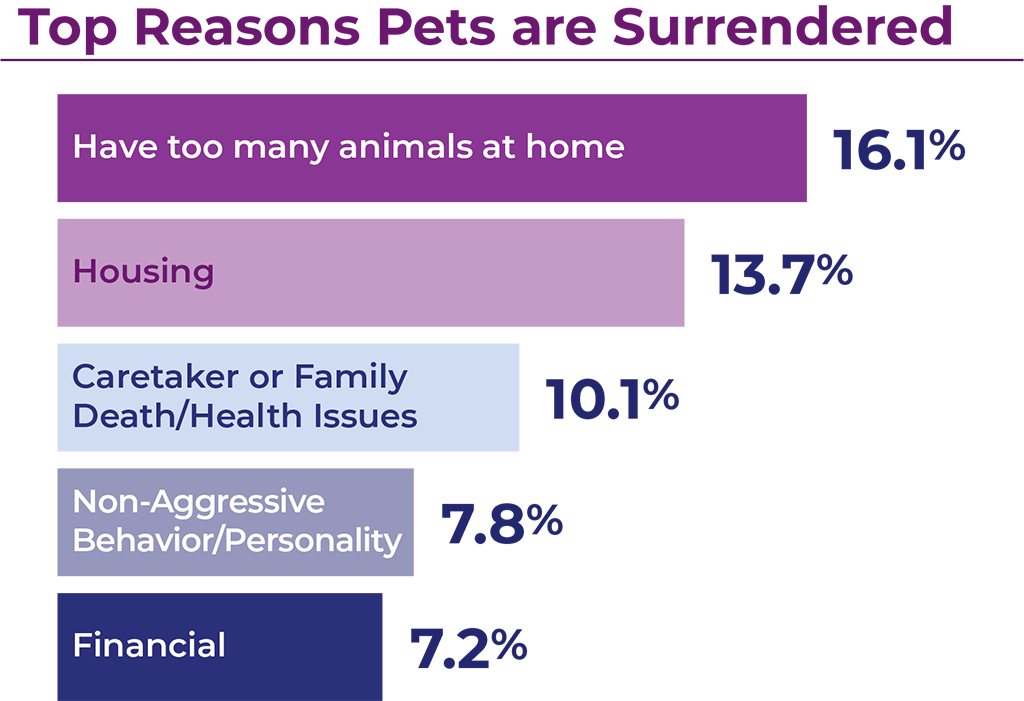
It’s estimated that 78 million dogs and 85.8 million cats are owned in the United States. Around 44% of all households in the United States have a dog, and 35% have a cat. Almost half of dog and cat owners learned about their pets through word of mouth.
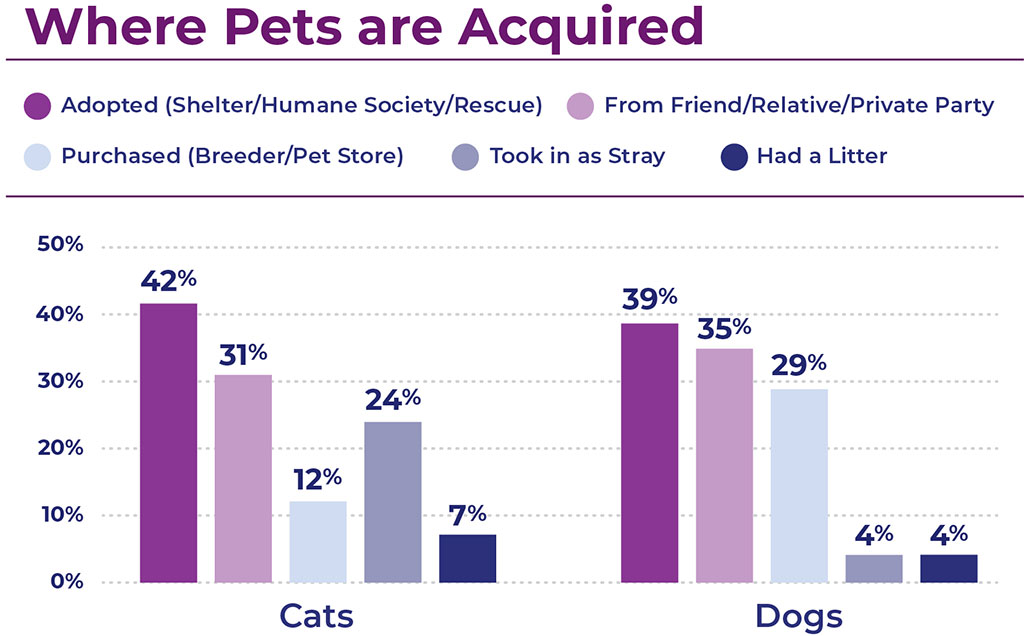
If you’re considering buying a dog from a breeder vs. a shelter dog or rescue adoption, don’t forget that you may be able to adopt the breed you’re looking for instead of buying it. Many rescue organizations work with specific breeds, so don’t forget to consider that option.
There’s also a vast price difference between rescues and purebred pups. A rescue can cost around $100 in adoption fees and may come to you microchipped, spayed/neutered, and vaccinated. Breeder fees can be $1,500 or more, plus the cost of spaying/neutering, microchipping, and vaccines. [4] Some shelters even offer $0 or name-your-own price options for older pets or for animals that have been there longer.

You can help save animals in your community by volunteering, donating, fostering animals in your home, and using the CharityRx prescription discount card at your pharmacy in April. Don’t forget that April is National Pet Month and the 30th is National Adopt a Pet Day. Each prescription you fill using our card results in a donation to the Shelter Pets Rescue Fund to save shelter pets. In addition to helping homeless animals, you’ll enjoy significant discounts on over-the-counter and prescription medicines for yourself, your family, and your pets. We also cover diabetic supplies and insulin. Click here to search for your medications and see how much you’ll save with the CharityRx card.
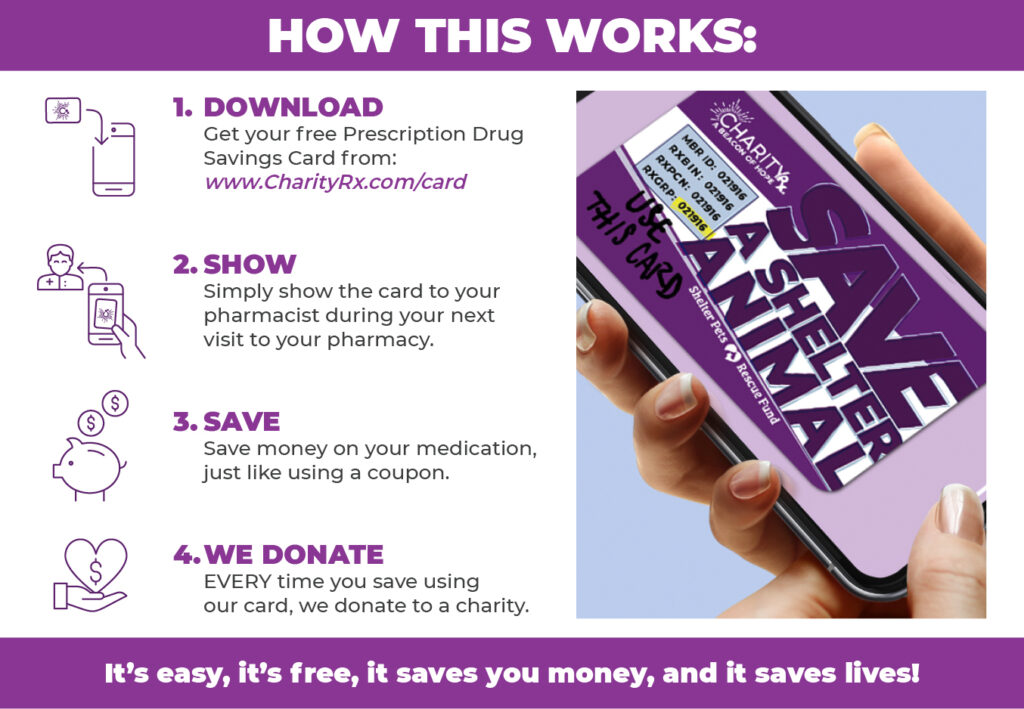
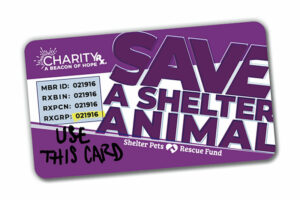

Resources: